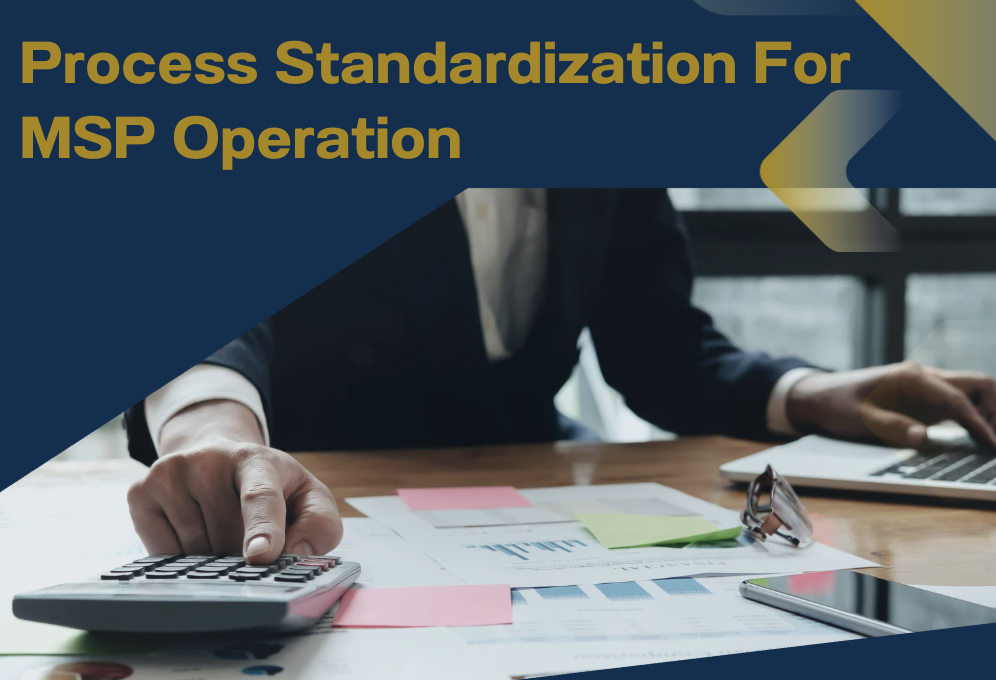The difference between MSPs that thrive during transitions and those that struggle lies in their commitment to process standardization. When every procedure is documented, refined, and consistently executed, your business becomes resilient, scalable, and capable of delivering exceptional service regardless of personnel changes.
Process standardization transforms your MSP from a collection of individual contributors into a well-oiled machine that operates with precision and reliability.
Understanding the Foundation of Process Standardization
Defining Process Standardization
Process standardization involves creating documented, repeatable procedures that ensure consistent outcomes across all service delivery areas. Rather than relying on tribal knowledge or individual interpretation, standardized processes provide clear guidelines for any qualified team member to achieve the desired results.
The Business Case for Standardization
Standardization impacts your bottom line through improved efficiency, reduced training time, and enhanced client satisfaction. When processes are clearly defined and consistently executed, errors decrease dramatically while productivity increases.
Building Blocks of Effective Standardization
Documentation Excellence
Creating comprehensive documentation serves as the cornerstone of process standardization. Well-written procedures should be clear enough for new team members to follow while detailed enough to ensure consistent outcomes.
Process Mapping and Analysis
Understanding current workflows helps identify optimization opportunities and areas requiring standardization. By carefully analyzing existing processes, MSPs can eliminate redundancies, streamline operations, and create more efficient service delivery methods.
Version Control and Updates
Standardized processes require regular review and updates to remain effective. Establishing version control ensures everyone works from the most current procedures while maintaining historical records for reference and improvement tracking.
Implementing Standardization Across Service Areas
Service Desk Operations
Standardizing service desk operations ensures consistent client interactions and resolution approaches. When support representatives follow established protocols, clients receive uniform experiences regardless of which team member handles their requests. This consistency builds trust and reinforces your professional reputation.
Project Management Methodologies
Implementing standardized project management processes reduces variability in project outcomes while improving predictability for both internal teams and clients. Consistent project execution methodologies help maintain budgets, meet deadlines, and deliver expected results.
Overcoming Common Implementation Challenges
Resistance to Change
Team members often resist standardization efforts, viewing them as constraints on their autonomy. Successful implementation requires clear communication about benefits while involving staff in process development. When team members contribute to creating standards, they become advocates rather than opponents.
Maintaining Flexibility
Effective standardization balances consistency with necessary flexibility. Well-designed processes include decision points and escalation procedures that accommodate unique situations without abandoning the standardized framework.
Continuous Improvement Culture
Standardization should enhance rather than stifle innovation. Creating feedback mechanisms allows team members to suggest improvements while maintaining process integrity. This approach ensures standards evolve with business needs and industry changes.
Technology’s Role in Process Standardization
Automation Integration
Combining process standardization with automation amplifies benefits while reducing manual intervention requirements. Automated workflows ensure consistent execution while freeing team members to focus on higher-value activities.
Training and Onboarding Tools
Standardized processes significantly improve new employee onboarding and ongoing training programs. When procedures are well-documented and consistently applied, new team members become more productive while reducing the burden on existing staff.
Conclusion
Through careful implementation of standardized procedures, MSPs create resilient organizations capable of delivering consistent, high-quality services while scaling efficiently. This transformation requires commitment and effort but delivers lasting benefits beyond operational improvements.
The Call to Action Team specializes in helping MSPs develop and implement standardized processes that drive operational excellence.
Don’t let inconsistent processes limit your growth potential—partner with the Call to Action Team to build the standardized foundation your MSP needs for sustainable success.



